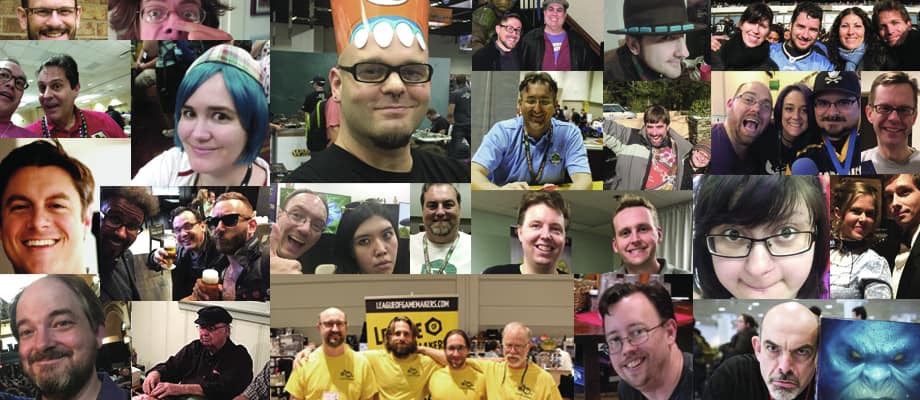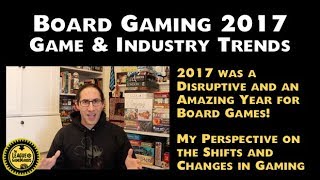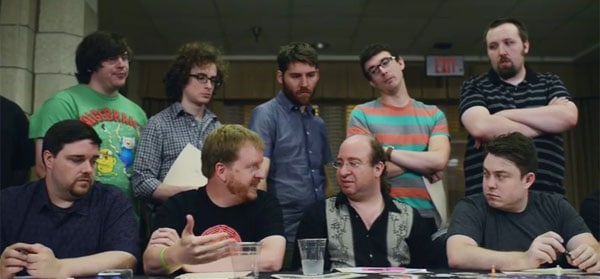
Coming up with a compelling and interesting board game design is tough, but what do you do when you’re trying to self-publish and you’re surrounded on all sides by giant publishers? Is it possible to get a leg up into the publishing world as an independent publisher?
AND WHAT DO GAME PUBLISHERS – PEOPLE WHO HAVE BEEN IN THE TRENCHES AND MADE THEIR DREAMS A REALITY – REALLY THINK IS IMPORTANT?
This was the premise behind the Cards Against Humanity Deathmatch, a contest held at Gen Con 2013 where 16 unpublished games were chosen and reviewed by the creators of Cards Against Humanity and other printing, designing, and industry professionals. But what was it like? Here’s our interview and episode with the judges with our finalist game, Jupiter Deep.
One of the best experiences of the Cards Against Humanity Tabletop Deathmatch for us was even before the contest began. The entry process asked us a whole bunch of questions we’d never thought of as normal players of games:
- How to elevator pitch it without making the publishers fall asleep
- How to describe the core mechanics before they’ve played it
- How our playtests went (and for a 2 to 7 player game, we needed a lot of playtesters!)
Making those answers solid and easy to articulate is essential at grabbing industry attention, and having that practice with the Deathmatch judges and honing it gave us tools that opened many doors for us as a game design team.
One other great piece of feedback we got was regarding our components and artwork, which we had done ourselves with the materials and skills we had. Getting to know the publishing industry at Gen Con 2013 allowed us to get honest professional feedback about how marketable and engaging our game felt at a glance, and to seek out improvements when we had the resources for the next iteration of the game.
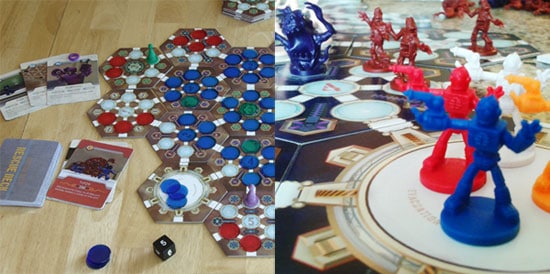
But I think the very best thing was the “summer camp”-like community that formed among the finalists, and it’s a shame they don’t really capture it on camera. We got a true sense of how universal the desire to see your dream published was, and the “Deathbabies”, as the CAH team affectionately called the finalists, got together several times through the course of Gen Con to share drinks, our stories, our anxieties, our advice about answering tough questions, and of course, our games!
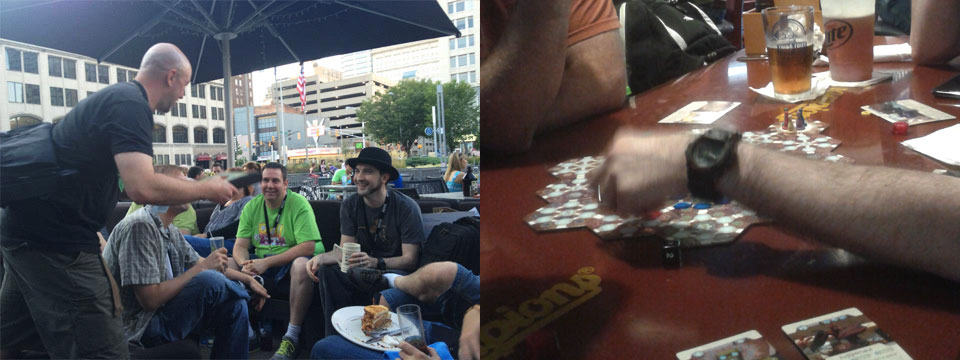
There’s nothing like finding a community of game designers, and you can feel the creative energy sparking when designers get together at a place like Gen-Con. Knowing that you’re not alone, and being able to open up about your Kickstarter plans, your experiences with publishers, and get support and open feedback, makes the journey so much easier.
We wish the very best to all our fellow finalists as the Tabletop Deathmatch series unfolds, and hope to see all their games become reality!

